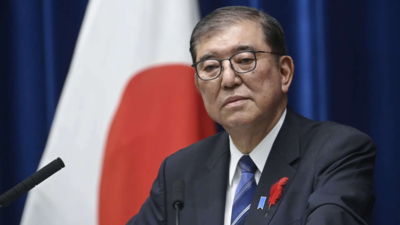
Japan’s Prime Minister Shigeru Ishiba has attributed the outcome of elections to the public’s “suspicion, mistrust and anger” stemming from a funding scandal in the wake of a disappointing election result for his ruling coalition.
During a press conference on Monday, Ishiba acknowledged the scandal’s significant impact on the Liberal Democratic Party‘s (LDP) loss of its majority in the Lower House.
Despite the setback, Ishiba expressed his intention to continue in office, ruling out the formation of a broader coalition and suggesting the possibility of leading a minority government. “At this point, I do not envisage forming a coalition,” he stated.
Ishiba stressed the importance of addressing public distrust by implementing “fundamental reform regarding the issue of money and politics,” hoping to restore faith in the ruling party. He emphasized the need for open discussions that allow the LDP to “humbly accept individual policies” from lawmakers outside the coalition.
The election results dealt a significant blow to the LDP and its coalition partner, Komeito, which secured only 191 and 24 seats, respectively, falling well below Ishiba’s “victory line” of a majority and marking a substantial decline from their previous tallies of 259 and 32.
Ishiba, who assumed office on October 1 and called the snap election to strengthen his mandate, now faces a divided legislature and the prospect of leading a minority government.
The opposition Constitutional Democratic Party (CDP), led by former Prime Minister Yoshihiko Noda, emerged as a major beneficiary of the election, with its seat count increasing from 96 to 148. The CDP positioned itself as a more reliable alternative, taking advantage of the public’s frustration with the LDP’s management of the funding scandal.
The scandal, which involved allegations of LDP officials misappropriating funds from party-sponsored events, played a significant role in influencing voter opinion and ultimately contributed to the ruling coalition’s electoral setback.
